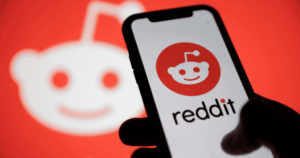The Evolution and Impact of Spotify Revolutionizing the Music Industry
In the ever-evolving landscape of the music industry, one platform has not only emerged as a leader but has fundamentally transformed the way we consume and experience music—Spotify.
In the ever-evolving landscape of the music industry, one platform has not only emerged as a leader but has fundamentally transformed the way we consume and experience music—Spotify. Launched in 2008 by Swedish entrepreneurs Daniel Ek and Martin Lorentzon, Spotify has grown from a fledgling startup to a global music streaming giant with over 345 million active users and a vast library of over 70 million songs. This article explores the evolution, features, and impact of Spotify on the music industry and the way we engage with music.
Spotify was born out of a simple yet revolutionary idea: provide users with access to a vast library of music, instantly, and legally. In a time when piracy was rampant and the music industry was grappling with the digital transition, Spotify aimed to create a platform that not only catered to the consumer’s desire for convenience but also addressed the concerns of artists and record labels regarding fair compensation.
One of the key factors that contributed to Spotify’s rapid adoption was its freemium model. Users could access a limited version of the service for free, supported by ads, while a premium subscription offered additional features such as ad-free listening, offline downloads, and higher audio quality. This model struck a balance between providing a valuable service to users and generating revenue through subscriptions and advertisements.
Spotify’s success can be attributed, in part, to its robust recommendation algorithms. The platform employs machine learning and user data analysis to understand individual preferences and curate personalized playlists, such as Discover Weekly and Daily Mixes.
Spotify’s success can be attributed, in part, to its robust recommendation algorithms. The platform employs machine learning and user data analysis to understand individual preferences and curate personalized playlists, such as Discover Weekly and Daily Mixes. This emphasis on music discovery has not only enhanced the user experience but has also provided artists with a powerful channel to reach new audiences.
While Spotify has undoubtedly revolutionized music consumption, it has also sparked debates regarding artist compensation. Critics argue that the streaming model’s low per-stream payouts may disadvantage smaller and independent artists. However, Spotify has defended its model, emphasizing that it provides an alternative revenue stream and combats piracy. The platform’s role in breaking new artists and enabling independent musicians to gain visibility has also been acknowledged.
Beyond its impact on the music industry, Spotify has become a cultural phenomenon. The platform’s playlists, such as “RapCaviar” and “Today’s Top Hits,” shape trends and influence the music landscape globally. Spotify Wrapped, an annual personalized summary of users’ listening habits, has turned into a social media event, with users eagerly sharing their stats and favorite songs. The platform has woven itself into the fabric of modern pop culture.
Despite its dominance, Spotify faces challenges from competitors such as Apple Music, Amazon Music, and Tidal.
Despite its dominance, Spotify faces challenges from competitors such as Apple Music, Amazon Music, and Tidal. These platforms offer their own unique features and exclusive content, intensifying the competition for subscribers. Spotify’s response has been to continually innovate, introducing features like podcasts, live audio, and collaborative playlists to differentiate itself and retain its user base.
Recognizing the growing popularity of podcasts, Spotify made a strategic move to expand its offerings beyond music. The platform has invested heavily in podcast acquisitions, exclusive deals with creators, and the development of its own podcasting tools. This diversification has not only broadened Spotify’s content library but has also positioned it as a comprehensive audio streaming platform. In just over a decade, Spotify has redefined the music industry and our relationship with music. From its humble beginnings as a startup to its current status as a global powerhouse, Spotify continues to evolve, innovate, and shape the way we discover and enjoy music. As the platform faces ongoing challenges and competition, its impact on the music industry and popular culture remains undeniable. Spotify’s journey reflects the dynamic nature of the digital era and the transformative power of technology in shaping the future of music consumption.



